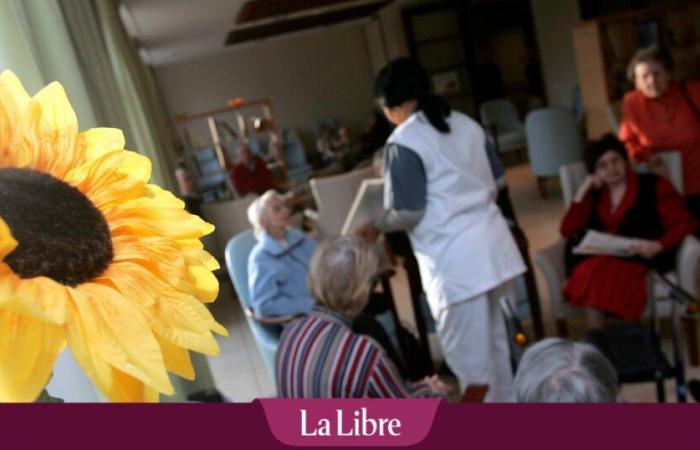The use of anti-dementia drugs is decreasing as more and more people suffer from it.
“Dementiarecalls AIM, designates a group of brain disorders which are characterized by chronic and irreversible degeneration of cognitive functions.like memory. “We speak of dementia to the extent that the severity of the symptoms is such that the patient is limited in his daily activities. The best known diseases causing dementia are Alzheimer’s and Parkinson’s.
A highly anticipated treatment, which “has proven effectiveness in slowing the progression of Alzheimer’s disease”, approved in Great Britain
According to an estimate from the Flemish Center of Expertise in Dementia, just over 200,000 Belgians today suffer from dementia, and around 8.5% of those over 65; constantly increasing numbers. Given that prevalence increases with age, the aging of the population is expected to accentuate this increase. We could exceed 300,000 cases by 2040.
More cases, but fewer medications
In other words, the consumption of anti-dementia drugs is decreasing as more and more people suffer from it. This observation, a priori paradoxical, is due to the fact that, “in 2011, the reimbursement for several anti-dementia drugs has been reduced : since then, ginkgo biloba extract is no longer reimbursedexplains AIM, and the reimbursement conditions for memantine have been tightened.
“To date, there is no known cure for dementiarecalls the Intermutualist Agency. Current treatments aim to combat certain symptoms and preserve the quality of life of patients and their caregivers. In the case of certain forms of dementia […]anti-dementia drugs slightly stabilize the cognitive functions of patients with a mild or moderate form of the disease. Their effects are, however, limited in time and their benefit/risk ratio is called into question.” This therefore led the authorities at the time to limit reimbursement for these treatments.
Higher consumption in Flanders
The consumption figures mentioned concern medicines reimbursed by Social Security. AIM data does not allow us to know the consumption of non-reimbursed medicines. “It is possible that the drop in total consumption will be less marked”notes the Agency. Thus, according to an Inami report published in 2015 (the Morse report), “halving the reimbursed consumption of the generic drug donepezil (for mild and moderate forms of Alzheimer’s, Editor’s note) between 2011 and 2014 only resulted in a decrease of 11% in the total number of packages purchased”.
Consumption of antidepressants on the rise: “Belgium exceeds the European average”
The fact remains that consumption of reimbursed anti-dementia medications among those over 65 is significantly higher in Flanders (1.5% of the population concerned) than in Wallonia (0.7%) and in Brussels (0.5%). That this consumption is higher among women (1.3%) than among men (1.0%), even if the gap tends to narrow. That it climbs to 4.2% among seniors who have stayed at least one day in a rest home in 2022 – this is however far from the 11.1% in 2011. And finally that the treatments are generally long-lasting.
Thus, nearly 9 out of 10 patients (88.1% in 2021) were prescribed anti-dementia medications for more than a year, compared to 5% between 6 and 12 months, and the remaining 7%, less than 6 month.






